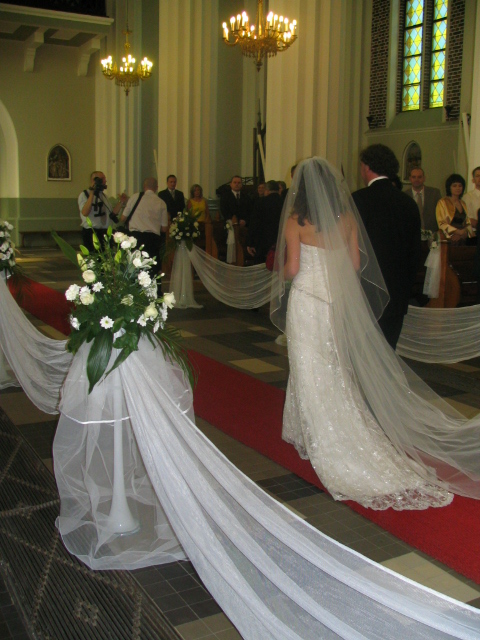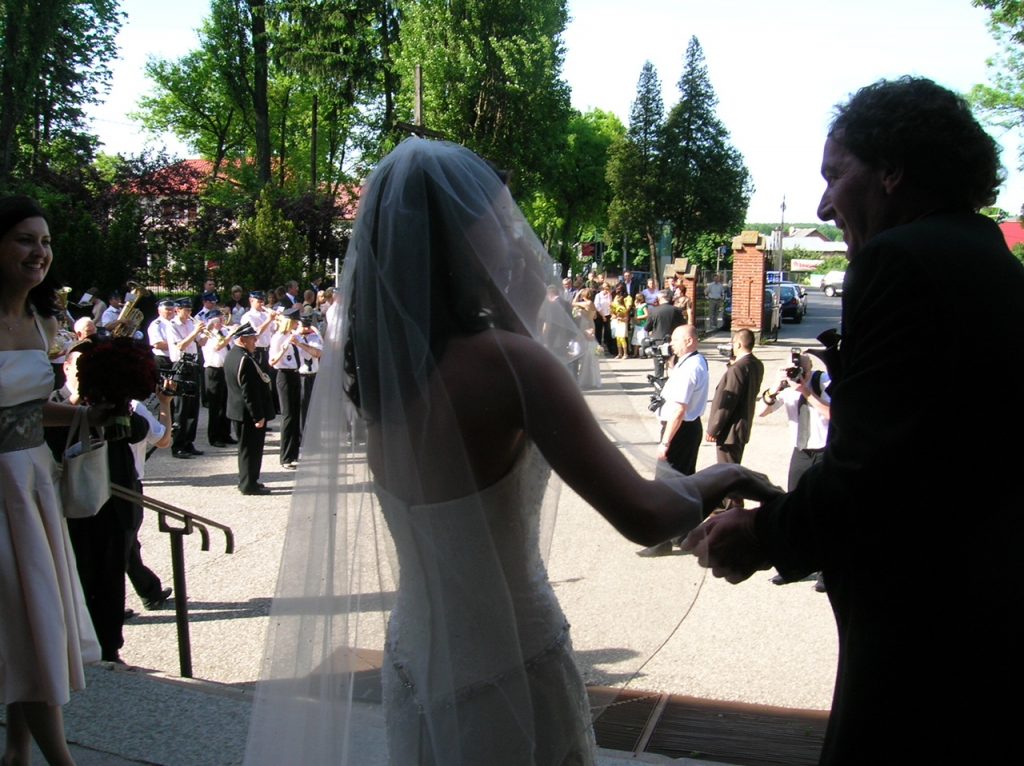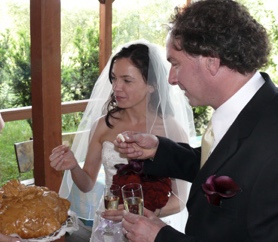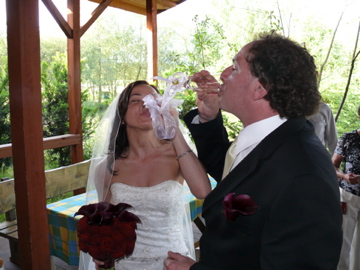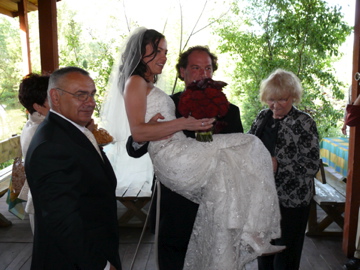How did I do with Polish wedding superstitions??? Posted by Kasia on Jan 27, 2018 in Culture
“Goin’ to the chapel and we’re gonna get married
Goin’ to the chapel and we’re gonna get married
Gee, I really love you
And we’re gonna get married
Goin’ to the chapel of love”
Can you hear the wedding bells? Two hearts skipping a beat, a romantic proposal and plans for your future together!
It is perhaps not a surprise that many Polish wedding ceremonies are still held in churches. In a country where so many people have at least some ties to the Catholic Church, this remains an important part of many couples’ wedding plans. And my wedding was a t the church as well…
We decided to have our “big fat Polish weeding” (ironically, my husband is Greek:)) !!! Don’t get me wrong, it was a lot of fun! But planning a wedding abroad is a lot of work…and stress. My parents are very traditional and to find a middle ground between what we all wanted was not easy.
I’m not a traditional person. I have a respect for my parents and traditions, but at the same time I try to stay true to myself and I realize that my happiness is about how I feel and not about what other people think. Again, I respect other people, but, for example, I want things to go certain way at my wedding, not the way other people would like it. “What will people think?” does not really phase me…It is your special day and it should be the way you want it! Right?
Polish church wedding can be long…? While you are listening to everything that is going on ( even if it is not in your native language), pay attention to some important details…Good omen and bad omen?
First of all, If you are invited to a Polish wedding, chances are the month probably contains the letter “r” (in Polish, that includes March, June, August, September, October and December). It’s thought that these months will bring good luck to a marriage and are thus the most popular times to plan a wedding. Ha! I got married in May! No “r” in it! And so far life with my husband has been amazing!
-1
When bride is walking down the aisle, it’s crucial she will not trip over her veil. Since it also is critical that she not look back to make sure it’s properly positioned, responsibility for minding the veil falls on the bride’s attendant (maid of honor). I managed to do this one right!
+1
Next, check out the bride’s shoes. Tradition has it that they mustn’t be open-toed – future wealth and fortune would fly right through the open toes. Yes!!! Not on purpose (to be honest, at that time I had no clue about this), but my wedding shoes were closed toe!
+1
Pearls? I love pearls, but according to Polish wedding superstitions, pearls can doom the marriage; custom dictates that brides never wear real pearls, as they will bring a lifetime of misery. Well…I wore diamonds!
+1
If you see the bride subtly move a patch of her wedding dress to cover the top of her groom’s shoe, she might be following the old belief that this will give her a position of dominance in the relationship. Well…I have to be honest…I’m not quite sure about this one…I will have watch the wedding video:)
…0
Having made it through the ceremony, the newlywed couple will exit the church as husband and wife. Where this moment is often accompanied with the throwing of rice, you likely will find that guests in Poland shower the newlyweds with coins (some Polish coins are quite small, thankfully). This is an adaptation of the traditional custom of throwing grain at the couple to ensure a prosperous and productive future. The coins, similarly, represent wishes for a successful future.
Hallelujah!!! No rice, but coins at our wedding!
+1
After the ceremony, many receptions start with the traditional presentation of bread and salt! Upon the newlyweds’ arrival at the reception, their parents present them with these essentials. The bread is specially prepared and often decorated with the names of the couple. This gift of bread and salt is symbolic – bread is offered so that the couple may never know hunger, while salt reminds them of life’s difficulties and the importance of learning to cope. Parents of the bride ask: “What do you choose: the bread, the salt or the groom?” To this, bride answers:”Bread, salt and the groom who can work to provide these”. A lot of times newlyweds are given either glasses of champagne or shots of vodka tied together. After tasting bread and slat, they toast it with this drink and throw glasses behind them to break ( if they break, it is a sign of good luck)!
And yes! We definitely went with this tradition!
+1
Last, but not least, carrying a bride over the threshold!
The ancient Romans started it: the bride had to show that she was not at all crazy about leaving her father’s home, and so was dragged over the threshold to her groom’s house. Ancients also believed that evil spirits, in a last-ditch effort to curse the couple, hovered at the threshold of their new home, so the bride had to be lifted to ensure that the spirits couldn’t enter her body through the soles of her feet. These days, it’s just fun!
And yes, again, we did it!
+1
5 overall points!!!
Superstitions and sticking up to the traditions is not bad after all!
I would love to hear more about your Polish wedding in comments below!

Build vocabulary, practice pronunciation, and more with Transparent Language Online. Available anytime, anywhere, on any device.




